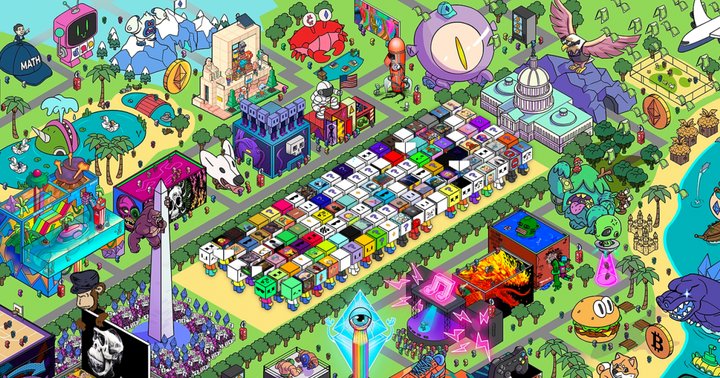From Universal Basic Income to financial inclusion through blockchain, Yang is building his DAO and his profile as an advocate for Web 3 technology.
In February 2020, Andrew Yang suspended his campaign for the Democrat nomination for U.S. President – but his work in financial inclusion has continued.
Yang is an earnest and charismatic speaker and his open approach and comfort with technology remind one of a tech CEO as much as a public servant. His presidential campaign brought attention to Universal Basic Income and the affable entrepreneur caught the attention of many tech-forward voters, particularly those in the blockchain space.
After a bid for Mayor of New York City in 2021, Yang is pursuing the same goals of financial inclusion but this time through the advancement of Web 3 technology. He is now building on the support of the blockchain crowd that helped elevate his Presidential aspirations in 2020 with Lobby3, a DAO and decentralized advocacy platform.
Lobby3 states on its site: “In just two years, (Lobby3) has become one of the most impactful advocacy organizations in the country – playing a defining role in getting stimulus checks passed during the pandemic and passing the child tax credit, essentially the largest Basic Income trial in history.”
Lobby3 promises to fund issue-based advocacy and to educate lawmakers on the potential of Web 3 with the hope of creating pilot programs that demonstrate the value of blockchain technology in lifting barriers to financial inclusion.
Yang took the time to speak with us concerning his DAO and his goal of educating lawmakers on the power of Web 3 and blockchain technology.

What drives your interest in Web 3?
“I ran for President on a platform of new ways to get buying power into people’s hands. And one of the communities that embraced me was the cryptocurrency community, where so many people had a mindset of abundance and optimism and possibility born of the fact that they’ve seen these tools transform, in many cases, their own lives financially.
This is a set of technologies that didn’t even exist a dozen years ago. So the question is, how broadly available, these benefits will be to people where most people, most folks are on the outside looking in of Web 3. But if you could include more people, then you could alleviate financial scarcity for many people who are struggling with it right now. And that’s one of the goals we should all have,” Yang said.
How do you see helping with Web 3-related programs?
“There are so many Americans who are unbanked or underbanked, who are being exploited by check cashing services and money lenders and pawn shops. And so the question is, why are those people outside of the current financial system? And are there new tools that could give them access to a foundation financially, and maybe even stability and growth over time?
There’s so much interest in giving people a step up or a leg up. And we’re looking at implementations right now that would involve Web 3 to demonstrate the potential of these tools to improve people’s lives,” Yang said.
What do you see as the regulatory trajectory of cryptocurrency?
“The trajectory of Web 3 is unclear, in part because the regulatory environment is to be determined. And just yesterday, Jerome Powell (Chair of the U.S. Federal Reserve) stressed that he thought that cryptocurrency needed to be more closely and rigorously regulated. And the question for a lot of people is when these regulations are drawn up, will they strike the correct balance between managing risk and also enabling innovation growth and job generation in the US? So if you can get some clarity on the future regulatory environment and maybe even certainty that those rules will strike the right balance? It would be an enormous boon to the long-term ability of Web 3 to reach its potential,” Yang said.
Do you think that the invasion of Ukraine by Russia will help drive the need for transparency in the blockchain community?
“I do believe that the visibility around these issues is rising, in part because of the tragic invasion of Ukraine. But that visibility was going up before the recent events. Most people are probably aware of the language in the infrastructure bill, which took people by surprise, but ever since then, it’s been clear that regulation is on the way. And I am of the mind that some level of regulation is appropriate. For people who think that the proper level is no regulation – you know, I think we have to face facts and know that the maturity of the space requires a degree of guardrails. And even that these guardrails could be very positive for long term growth, because they’re still a frontier aspect to a lot of Web 3, and some well-balanced regulation could actually help with mainstreaming and growth,” Yang said.
What can those in the blockchain community do to support Ukraine in its time of need?
“I think the best thing that we can do is send resources generally in the way of financial contributions. Web 3 has the massive advantage of being uniquely portable and accessible to others around the world if they have the right tools. And it seems that there are people who are servicing the needs of those new in Ukraine. With the resources that are being sent from people around the world, it’s been very heartening to see the Web 3 community come together for a cause like this in a really difficult time,” Yang said.
Did you originally become interested in this because of their support for you and terms of offering universal income?
“I got excited about Web 3 in large part because so many people from the community embraced me during the presidential campaign. But my primary focus has been alleviating poverty for millions. I see poverty as unnecessary and anachronistic. And when I realized that Web 3 could be such a powerful tool to reduce poverty and that potential might not be met, in part because of confusion in DC about these technologies, I thought I could lend a hand and in so doing, demonstrate what these tools can do to improve people’s lives in the real world, which I believe so many people want to see happen,” Yang said.
How much awareness of Web 3 and blockchain technology is there in DC?
“So, we heard from folks in DC and the primary emotion people feel or attitude (toward blockchain) is one of confusion. That’s not to blame anyone – the average lawmaker came of age in a time when technology was not such a powerful force in peoples’ lives. So we have to dispel the confusion as quickly as we can. I will be honest, that if you talk to people in Washington, DC, the main use cases they raise for cryptocurrencies are money laundering, drug trafficking, and, and human trafficking. But, I’ve talked to hundreds of people who are using these technologies to build communities and enterprises. There are myriad use cases,” Yang said.
Does Lobby3 function essentially like a Political Action Committee re-imagined as a DAO?
“Well, to some degree, it’s going to be up to the members of the DAO, that’s the beauty of it. Lobby3 DAO will take the energy and ingenuity of people who use these tools every day, to make a case to lawmakers and policymakers in the way that only they can. And in some cases, beneficiaries of these technologies are the constituents of various members of Congress
There are a lot of people who regard DC as a black box and don’t understand it and don’t want to understand it. So there’s going to be learning both ways. Members of Lobby3 DAO are actually going to meet with both policymakers and advocates. And they’ll be able to vote on various decisions and courses of action. So you can become a member of Lobby3 DAO and actually become an advocate in real-time, but in an effective way, as part of a large group,” Yang said.
Is a DAO something else you will have to explain to policymakers in D.C.?
“Oh, well, the fun thing is that they don’t need to understand necessarily. I mean if they do fantastic, but what they need to see is that there are massive benefits from these technologies to be balanced with the legitimate concerns. And if you’re a policymaker or regulator, you owe it to the people to try and get the balance right. And getting that balance right will involve some education and understanding. But it doesn’t necessarily mean that they’re going to be diving into the world of DAOs themselves. Of course, if they did that would probably be very beneficial,” Yang said.
What is it that you would like to build or most accomplish in 2022-2023?
“I believe that rules are going to be issued this year. And my goal is to see that those rules strike the right balance. I’m pretty confident that some people are going to find a reason to be very disappointed in whatever rules come out. But there’s a difference between being disappointed and having your organization’s or project’s future dramatically diminished.
So I have very immediate goals, which are to try to see to it that the rules are as well reasoned, and balanced as they can be with a true understanding of both these technologies and the people that benefit from them every day. And if anyone reading this wants to join us in leading this effort, please go to Lobby3.io. We need your voice, and we need your help in educating the folks in DC, on the potential of these tools to improve millions of people’s way of life,” Yang said.
The mainstreaming of crypto, accelerated in part by the pandemic, has brought the blockchain community a steady stream of leaders in technology, finance, business, and art. It seems a fitting progression for national-level political figures to engage with Web 3.
Certainly, the fundraising opportunities, through NFTs or token sales, have captured the attention of virtually every industry. Now Yang is leaning into the voting mechanics of a functioning DAO in a way that makes a lot of sense, combining the benefits of digital ownership established with blockchain and the greater share of voice for participants promised with Web 3.
After all, if you can buy fractional ownership of an office building or a work of fine art, why not invest directly in the future of your government by investing in a crowdsourced lobbying effort? Of course, voting on efforts by Lobby3 is all future tense, but it will be interesting to see what the people will bring to the table when they are given the chance to participate more directly in the process of making national policy.

